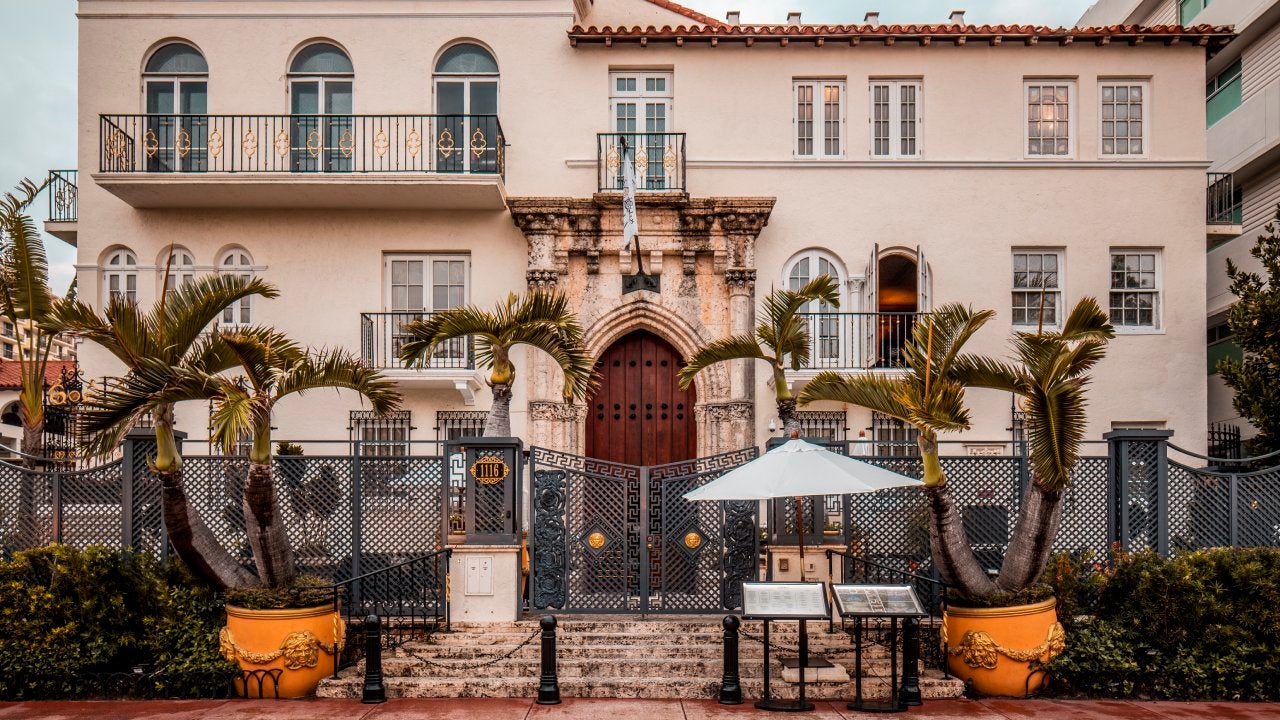Selling A House In Miami

If you’re gearing up to list your house in Miami, you’re entering the market at a confusing time. On one hand, 2022 is poised to be one of the biggest years for home sales in Miami-Dade County ever. Of the 20 cities surveyed in CoreLogic’s latest Case-Shiller U.S. National Home Price NSA Index, Miami reported the highest year-over-year gains — a 24.6 percent increase, to be exact. As of October, an average of 92 properties were selling every single day at a median price tag of $575,000.
On the other hand, that insane pace of sales is slowing down due to a quickly-changing market with high mortgage rates that are blowing out the candles on the party. In fact, sales in October dropped by more than 30 percent versus one year earlier.
However, the sun can still shine on your south Florida sale. Read on for everything you need to know about creating a successful strategy to sell your house in Miami.
Things to consider when selling your house in Miami
What kind of shape is your home in?
Since buyers are already shelling out a huge chunk of money to plant roots in Miami, most of them aren’t going to want to pay for major repairs after they move in. With that in mind, it’s important to determine what you need to fix versus minor issues that don’t need to be addressed. For example, if you have visible damage from the most recent hurricane season, you’re going to want to deal with it to avoid turning buyers away. In addition to dealing with problems, make sure you consider some of the cheap and easy ways to boost your property value. A simple step – hiring someone to paint the interior or sprucing up your front lawn landscaping, for example – can go a long way toward impressing prospective buyers.
How quickly do you need to sell?
If time isn’t on your side and you are in a rush to find a buyer, the current market doesn’t look that promising. The median number of days between listing and going to contract was 30 in October – up from 22 days a year earlier, according to the Miami Association of Realtors. However, Miami does have an especially promising piece of news for sellers in a rush: All-cash offers are regular occurrences here. If you’re selling a condo, you’re in even better shape. More than 48 percent of condo sales were all-cash deals, which saves a huge amount of time versus dealing with a buyer who needs to secure final approval for a mortgage.
There are plenty of ways to sell your house for cash. You can price it under the market in the hopes of attracting individual buyers, or you can compare companies that buy houses for cash. And if your house is in less-than-perfect shape, it might be wise to think about listing it as-is, which serves as a simple disclaimer for buyers: What you see is what you get – no concessions and no back-and-forth negotiations.
What’s the market like in your specific area?
While the data trends of the Miami metro area are helpful in understanding the pulse of the market, it’s important to remember that Miami-Dade County is massive. With an area that includes more than 2,000 square miles, you’ll need to think about how fast homes are selling in your particular neighborhood. The market can look quite different from Hollywood to Hialeah Gardens or from Aventura to Doral. As you prepare to sell your home, do your research to look at comps of recently-sold properties in your area to get an understanding of how much buyers are willing to pay for properties there. And don’t get greedy while looking at the median price tags of the entire area: The multi-million dollar figures for Miami’s luxury waterfront properties can skew the numbers.
How much will all this cost?
Selling a home in Florida isn’t free. Before you list your home in Miami, here’s a rundown of how much it will cost to close the deal.
- Realtor fees: Budget around 6 percent of the purchase for real estate agent commissions, which includes 3 percent to each of the agents involved. On a $575,000 sale, that comes out to $34,500. That sounds like a lot, but it’s worth it (read up on the importance of hiring a Realtor below).
- Transfer taxes: Miami’s documentary tax stamp rate – commonly referred to as a real estate transfer tax in other parts of the country – is structured differently than the rest of Florida. On a single-family home, the tax is $0.60 for every $100 of value ($3,450 on a $575,000 sale). For any other property type, the rate is higher: $1.05 for every $100 of value ($6,037.50 on a $575,000 sale). There is no set law on who pays this, but sellers are typically responsible. You can always negotiate to get the buyer to cover part of this cost.
- Title insurance: You’re probably off the hook for covering the cost of a title policy. While sellers pay for this fee in most of Florida, Miami-Dade is an exception where buyers usually handle this expense.
- Unpaid property taxes: If you have any outstanding property taxes, you’ll need to cover these before transferring ownership to the buyer.
- Attorney fees: You don’t have to hire a real estate attorney in Miami, but you should. Selling a house involves confusing legal language, loads of contract revisions and potential liability on disclosure forms, so paying an hourly rate for a lawyer’s expertise is worth it.
- Concessions: The buyer may request concessions if their home inspector identifies any necessary repairs. You don’t have to say yes, but if you do, you will pay a portion of the buyer’s closing costs.
Preparing your home for sale in Miami
Real estate is an industry of first impressions. Prospective buyers are going to take a look at your online listing or walk in your door, and you have a very small window to make them feel like your home can be their home. Hiring a home staging service can help them envision moving in. How much you’ll pay for home staging depends on how much help you’ll need. Decluttering and organizing will be a small bill, but if you’ve already moved out and need to rent furniture, you will need to carve out room for a bigger budget.
You also need to inform buyers of any issues that will impact the value of the property that are not “readily observable.” So, for example, if there is past water damage in the basement, you need to make the buyer aware. What would you want to know if you were in the buyer’s shoes? Technically, you’re allowed to just make a verbal statement, but the best way is to complete a seller’s property disclosure form.
Additionally, you’ll need to fill out a property tax disclosure statement to share your past tax obligation with the buyer. Finally, if you live in a condo or belong to a homeowners association, make sure you request documents about the association’s financial health and any bylaws that a new owner will need to follow.
Selling your house with or without a Realtor
While you might be thinking about trying to save some money by selling your house on your own, paying for a professional real estate agent – typically 3 percent of the purchase price, although you might be able to negotiate a smaller cut – is one of the smartest investments you can make. Data from the National Association of Realtors shows that FSBO (for sale by owner) listings sold for an average of $105,000 less than listings with an agent in 2021. Plus, the Miami market is the number-one destination for foreign buyers. International buyers aren’t likely to be browsing DIY listings online for real estate; they’ll be working with a professional Realtor. So, hiring the right real estate agent will put your listing in the network of the professionals who buy and sell homes everyday.
Pricing your home to sell
If you’re thinking about selling your house in Miami, you’ve probably already tried to estimate what it’s worth. However, online tools aren’t as valuable as the human expertise of your real estate agent. They will be the best resource in helping to determine the most important piece of the selling puzzle: the asking price.
Recent Redfin data shows that an increasing number of sellers in Miami are dropping their prices to attract hesitant buyers. As properties sit on the market longer, you may want to consider starting with a lower price point than you might have used just a few months ago. Additionally, it’s important to understand that you’ll likely get a bit less than your asking price. Single-family homes have been selling for a median of 96 percent of their asking price. So, if you list it for $500,000, that’s a final purchase agreement of $480,000.
Getting to closing day
Getting a buyer to make an offer isn’t the end of the journey. You’ll need to get them to actually go through with it – a task that is getting tougher to do as more buyers back out of their purchase and sale agreements. In fact, nearly 18 percent of homes that went to contract in Miami in August didn’t actually close, according to Redfin. Make sure you’re working with your agent and your attorney in the game of give and take as the buyer conducts a home inspection and works to negotiate a better deal.
Schedule movers to prepare for the buyer’s final walk-through, and clean the place up. Also, if any issues arise that adversely impact the property’s value (the information you needed to share in the initial disclosure), you need to tell the buyer about the change.
You won’t actually need to attend the closing if you hired a lawyer. They can be responsible for checking off the final details, transferring the funds and making sure the deal is done correctly. After all your closing costs are paid (and your mortgage loan retired, if you have one), the rest of the money is yours. Congratulations on your next adventure — whether you’re moving elsewhere in the Sunshine State or heading for new lands altogether.


